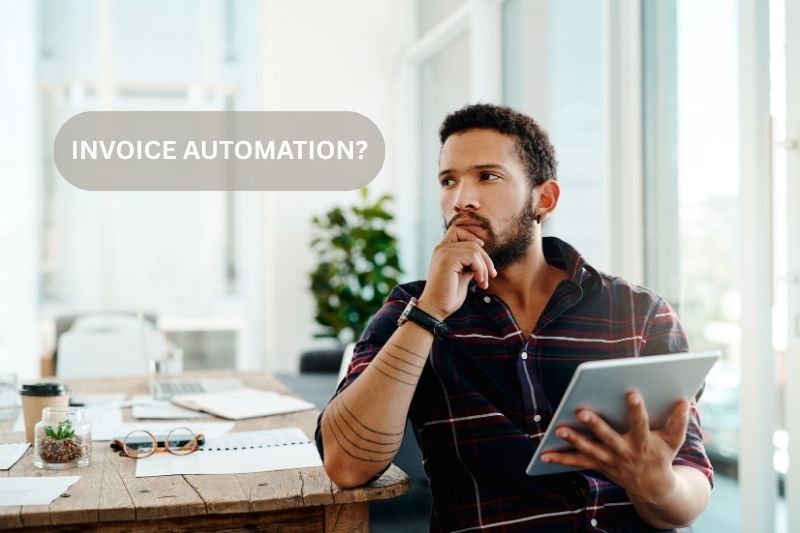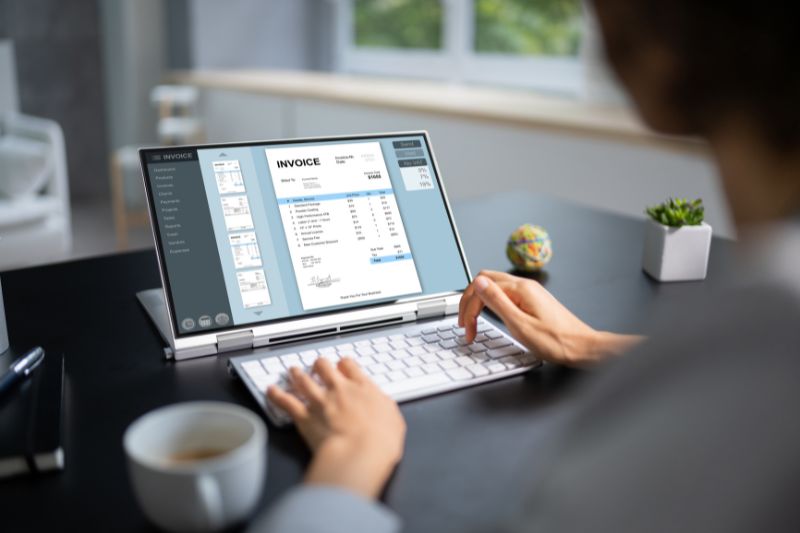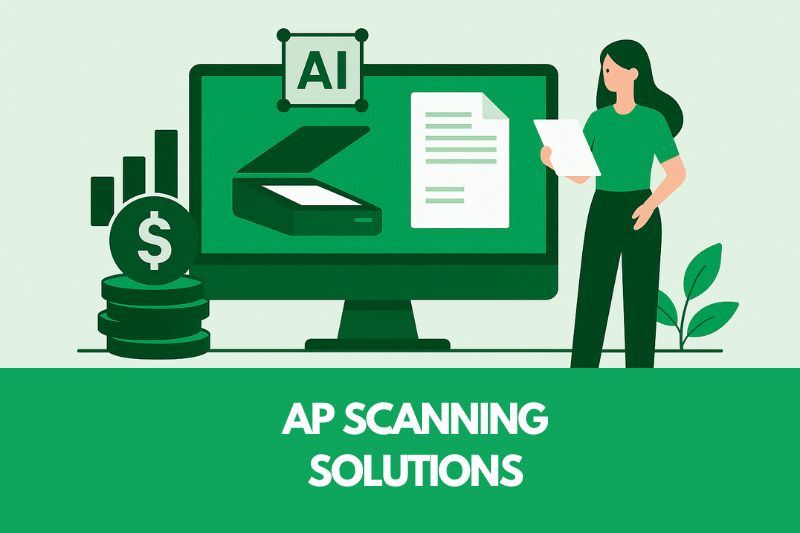Will Accounting be fully automated in the future?

The accounting world has progressed considerably throughout history, and this trend will not change. Now is the age of automation, AI, and machine learning.
Automation is shaking up almost every department and process within companies, and accounting is no exception. This is why as a business executive or entrepreneur, you have to stay abreast of all new technological developments and trends, such as cloud computing.
As automation and AI become more prominent buzzwords across many business sectors, many employees—especially CPAs and accountants—wonder what this means for their jobs?
So what will automation mean for the Accounting industry?
What is Accounting Automation?
When we use the term automation, you may imagine sophisticated and advanced technologies, such as robots forecasting your business sales by leveraging predictive software. While that is true, automation simply means the use of technology and accounting software to perform accounting tasks you did manually.
Automated accounting uses software and programs to complete various accounting tasks, such as bank reconciliations. Note that computerized accounting is not anything new. However, over recent years, automation has considerably increased and improved the functionality of these programs.
Today, in some instances, accounting automation leverages technology to altogether remove the manual parts and aspects of an accountant’s work. And this means no more:
- Manually reconciling your business bank statements
- Manual data entry into a computer
- Paying suppliers or vendors one-by-one
- Producing various financial reports, such as income statements, in a spreadsheet

As you can see, there are several benefits of financial process automation in your company. Accounting automation is convenient as it allows you to complete many accounting tasks with software programs without any manual intervention.
Further Reading: Automation in Accounting – Success Stories
Did you know that many accounting operations and tasks can be automated with basic technologies? An example is:
OCR (Optical Character Recognition): This technology scans and digitizes physical documents, such as receipts, and then pulls or extracts numbers from these documents.
With an automation solution like Envoice, you can automate data extraction from your purchase invoices and receipts and get peace of mind. The tool provides you with complete purchase management and expense reporting solution.
With this and other technologies powered by machine learning and AI, businesses and companies will not have to fiddle with revenues and expenses through manual and time-consuming data entry.
According to Gartner, the implementation of RPA (Robotic Process Automation) can easily save an accounting team of 40 people around 25,000 hours of costly rework caused by human error every year. (1)
Can you be replaced by Accounting software?
The answer depends on many factors, especially your ability to adapt and change.
A research report by Oxford University revealed that there was a high (99% chance) that tax preparers’ jobs would get automated and an almost 98% chance that the same would happen to accounting and bookkeeping professionals. (2)
Did you know that these numbers for the accounting profession are some of the highest scores among more than 700 occupations listed?
In the past, many things used to be performed by hand, such as journal entries, which can now be generated by modern computer programs. And in your business, you may use QuickBooks or Xero to instantly do several repetitive tasks and duties that used to require much more time.
Using Xero, you can connect them with Envoice to lower your bookkeeping costs and processing times. The data extraction, expense management and posting automation features are convenient and allow you to focus on your actual business challenges.
Automation will Transform Accounting processes, not Replace Accountants

It is no secret that AI technology and software programs can handle many basic accounting jobs much faster, more efficiently, and often without any human error.
However, it does not necessarily mean that automation and AI technology can replace accountants. Instead, it means that accounting and finance professionals will have to evolve.
According to one report, almost 46% of companies intend to implement AP automation in the next couple of years. (3)
However, companies will always need human accountants and finance professionals to analyze and interpret accounting data.
Experts think technology has already replaced or substituted plenty of manual and tedious accounting work. However, it is highly unlikely that automation will replace the human elements or aspects of accounting.
So far, automation and AI have been great for businesses and startups. Accounting and bookkeeping software programs can save business owners and managers hours while eliminating human error.
3 Reasons Why it is Hard to Automate the entire Accounting process
Automation of accounting is undoubtedly inevitable in the future. Remember that it is bound to happen in the next couple of decades. However, we cannot conclusively assume that it is a simple task.
This is because many things go into accounting, and it is challenging to automate all of them. There are many reasons why automating accounting and bookkeeping is hard, and it will probably take time to automate it fully.
1. Unique and Complex Business Requirements
Accountants and financial professionals use Artificial Intelligence and various Application Programming Interfaces (APIs) to simplify their work and automate repetitive tasks.
However, because of the differences in business infrastructures, processes, and requirements, it is much harder and trickier to bring about an immediate change in the industry.
Before going for any system automation, you have to research these systems to ensure that they don’t generate any errors or corrupt the whole platform and its reports.
2. Technical Issues
Whether it is your internet connection, computer, or knowing and understanding your software, technical issues and glitches can sometimes occur. While technical issues and errors are possible, they are usually few and far between.
3. Accounting Requires a Comprehensive Skillset
You should also know that accounting is an all-around career. Also, it involves more than simply doing complex financial calculations and solving problems.
Sometimes, accountants engage in other business activities, such as acting as business advisors and consultants.
These activities are important to organizations and businesses as they help business owners and entrepreneurs better their financial statements.
And as business advisors, accountants usually play a big part in the growth of businesses.
Keep in mind that this growth promotes and facilitates business and, hence, increases the demand for accountants and accounting services. While repetitive tasks and jobs can be automated, certain leadership traits and expertise accountants have can’t be automated.
What Parts of Accounting are Most Likely to Become Automated?
1. Expense Management
No one likes running after employees to collect receipts. By issuing corporate credit cards or reimbursing your employees for expenses, it is possible to save time by eliminating the manual need for tracking spending through paper receipts.
And automating expense management will help you:
- Simplify receipt uploading using snapshots
- Create a simple approval process
- Match data from all your company credit cards to employee receipts
- Forward expense data for accounting and bookkeeping

2. Tax
While the dreaded T word often strikes fear into the heart of many accounts teams, you cannot get away from tax returns.
The good news is that if you have been using automation for expenses, invoicing, and payments, this digital trail can also be picked up by a bot. This can then provide you with all the information required for your next tax assessment.
3. Month-End Reviews
Before the accounting books are closed, senior accountants usually review the books to identify any accounting errors and potential issues. This task is time-consuming and ties up valuable resources, particularly if the accounts manager has to review several files every month.
Luckily, there are many tools available that will help automate the month-end review process in your company to spot errors and mistakes before they even get to the manager’s desk.
4. Payroll
For accountants, payroll is probably one of the biggest headaches. There are many things to consider: hours, taxes, benefits, etc. And you have to document all that. Thankfully, automation and AI are perfect for this kind of task.
Bots can quickly sift through massive amounts of data, aligning it with various payment parameters, such as wage rates, without breaking a sweat.
Benefits and Advantages of Automated Accounting systems
Let’s briefly outline the main benefits and advantages of automated accounting.
-
Time Savings
This is an important and obvious benefit of automating the accounting process. The more manual and tedious accounting data input tasks you automate through the software program, the more valuable time you can save and focus your efforts and energies elsewhere.
Avoid giving repetitive tasks to your team and instead assign them a business advisory or direct delivery role or position that will be more interesting and engaging. This will enable them to handle crucial tasks that can’t be managed by automation.
Further Reading: How to Automate Your Bill Payments with Artificial Intelligence
-
Limit the Number of Mistakes
All human beings make mistakes, and all processes have their unique flaws. This is why automating tasks helps eliminate the risk tied to several entries and duplicates generated through manual management.
Automation ensures the integrity and quality of data included in customized reports that you present to decision-makers in your company.
-
Deep Analytics
While digitization has made analytics more accessible and straightforward for accounts staff, automation can take it to the next level. Think that while you compose an email message requesting a report from another business department, a robot could have easily gathered that data in just a fraction of the time.
-
Improves Margins
If automated accounting cuts down the time you spend to perform specific accounting tasks, then it’s only natural to expect that you’ll be incurring cost savings on the work of those automated accounts.
Conclusion

When you consider the trends and money-spending habits of leading companies, the best way to prepare your company or startup for the future is by investing in accounting automation and products like Envoice.
Envoice is a SAAS tool that helps accounting firms save time and money by automating expense management (accounts payable) workflow.
And human accountants and CPAs don’t have to worry about being replaced by accounting software and AI technology.
Yes, your duties and responsibilities may change, and you will likely have to adapt, but that’s part of every job. Automation and AI technology can help make your job simpler in some ways.
Whether it is the amazing power of flexible APIs, or the capability of the latest automated reporting feature, with the right product, you can realize the benefits and conveniences of working with an automated and reliable accounting solution.
Article Sources:
2 – https://www.oxfordmartin.ox.ac.uk
STAY ALWAYS TUNED
Subscribe to newsletter
Still not sure?
- Don’t spend time on manual work
- Streamline bookkeeping processes with AI
- Automate invoice processing
- Integrate with the tools you rely on every day












